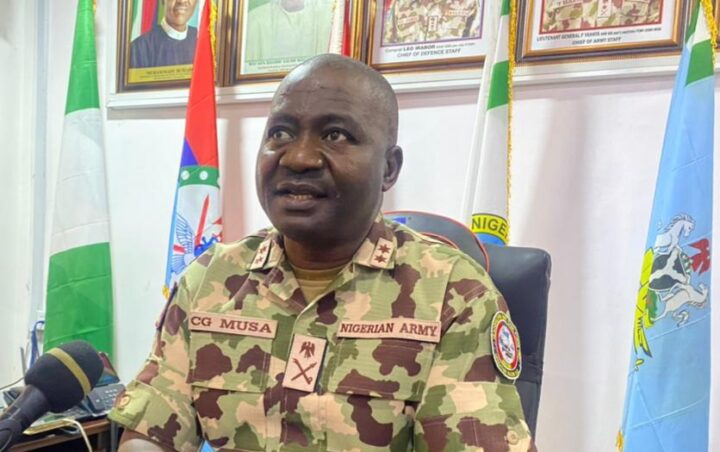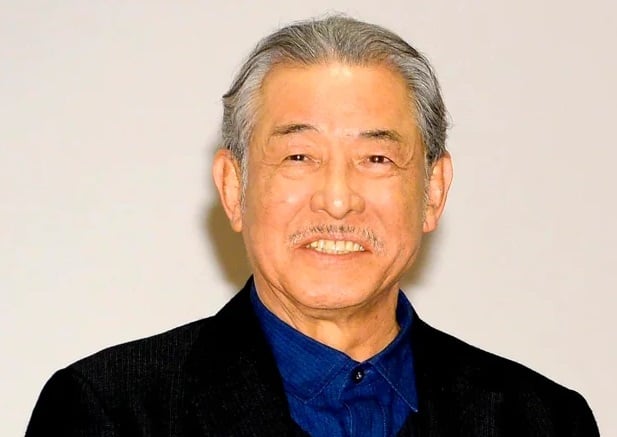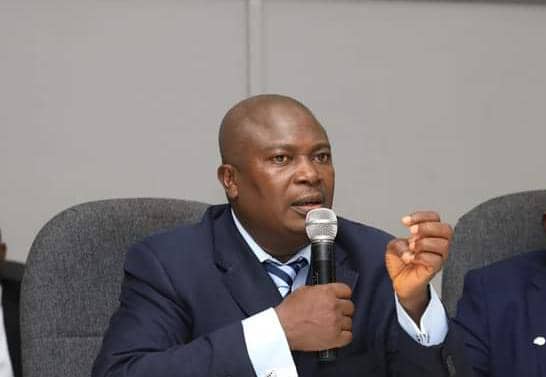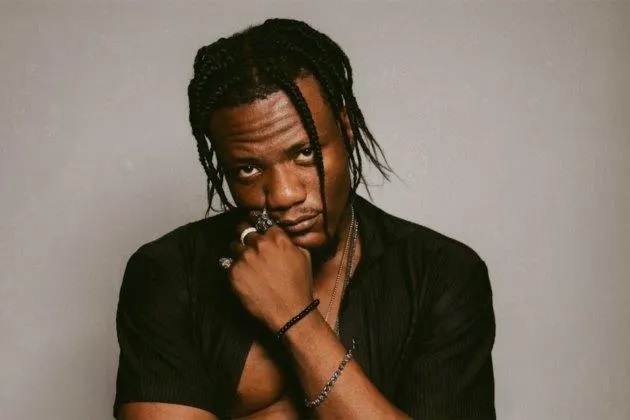For 13 years, the Nigerian military has been in an asymmetric war with Boko Haram/Islamic State West Africa Province (ISWAP) insurgents in the north-east. Hundreds of soldiers and officers, in these years, have been drafted from military formations across the country into operation Hadin Kai, formerly Lafiya Dole, a joint task force operation to fight the insurgents. Today, Hadin Kai is the most popular military operation in Nigeria, and many have been asking if successes have been recorded and if it is now safe to say the war against Boko Haram/ISWAP has been won.
In this interview with TheCable’s FEMI OWOLABI at the operation’s headquarters in Maiduguri, Borno state, Christopher Musa, a major-general and commander of Hadin Kai, provided updates on some of the issues around the operations.
TheCable: On June 26, 2021, when Faruk Yahaya, the chief of army staff, visited troops on the frontline at sector 2 joint task force of operation Hadin Kai in Damaturu, Yobe state, he asked them to destroy remnants of Boko Haram terrorists. This was about two weeks when you were appointed theatre commander. It’s a year now. Can we say those remnants have been destroyed?
MUSA: Yes, over a year now when he made that statement and so far we have keyed into it and I can tell you there’s a remarkable improvement in the conduct of our operations. We went swiftly. All the three sectors in the theatre took up the task and we have conducted several operations which we’re still doing and we’ve greatly diminished their capabilities all over the theatre. And that’s why you see there’s a very very high level of peace and tranquillity within the area.
Advertisement
It is not yet over because like I always say, asymmetric warfare is very difficult warfare. We’re dealing with non-state actors, and people you don’t know. In conventional warfare, you know your enemy. This one, you don’t. They’re all your citizens, so you can see how delicate and complicated it is. If you go all out, you might kill innocent souls, and it makes it very very difficult. So whenever you’re going out, you have to be very precise in what you’re doing so that you also safeguard the lives of innocent individuals.
But I can tell you that we’re doing so well, and we’ll continue to do well. What we enjoy now is this synergy with all the security agencies and all the stakeholders including the populace. The populace is with us, we’re getting information as quickly as they occur and we’re reacting promptly. Besides that, we’re also cooperating with the multinational joint task force, because we have understudied the modus operandi of the insurgents; once you push, they either go across the territory to other countries like Chad, Cameroon and Niger, and then come back later. So we took up the issue and we combined our efforts in the joint task force operations.
TheCable: According to the global terrorism index (GTI), the death of Abubakar Shekau, leader of Boko Haram, and the efforts of the government are factors that led to the decline of Boko Haram in Nigeria. General, there have been several claims by the army since 2014 that troops have killed Shekau only for him to show up again. But this time when the news of his death came, the army said it was still investigating. Can you tell us the outcome of this investigation?
Advertisement
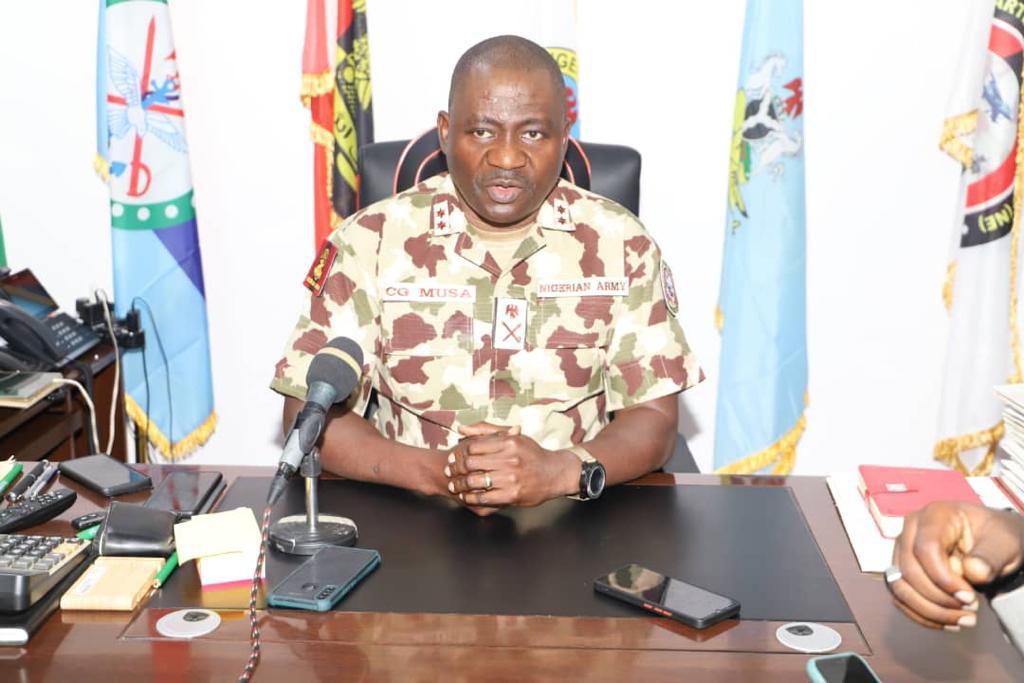
MUSA: Shekau is dead. It has been confirmed by even his followers. I’m sure you’ve been following up with the surrendering that has been ongoing. So far, we have over 73,000 insurgents that have surrendered, combatants and non-combatants surrendering with their children. What we basically do in the theatre is that we carry out both kinetic and non-kinetic operations. The kinetic is where we use force, and it’s just about 25%. The remaining 75% of the operation is non-kinetic, which has to do with good governance and all that stuff. Shekau is gone, dead and forgotten.
The insurgents had in-fighting over leadership and then the ISWAP breakaway, with their allegiance to ISIS. And so, there is in-fighting between the Shekau guys and the ISWAP. And then, our own operations also go in. So all these things made their situation more complicated. Now, we’ve been able to conduct blockades, cut off the oxygen that keeps them going; funding, logistics, leadership, reinforcement within – we’ve been able to tackle those. So, combining efforts with the multinational joint task force, we are also working towards blocking the international boundary so that it will always be difficult for them to get reinforcements outside.
The challenge is that the funding they’re getting from foreign sponsors keeps them going and that is specifically more to the ISWAP. The leadership of both Shekau and ISWAP groups are finding it difficult because almost all their members are pulling out and so the leaders alone can’t do it. So, they formed up teams now and they’re going after those who surrendered. But Shekau is gone out of the system. It is just these remnants.
But what we’ve also realised is that some of these guys are just doing business. A lot of times, they tell you they’re attacking here or they’re moving here, it’s just to show their sponsors that they’re still active. They only now go to look for food in the name of attacks. They lack food and very little ammunition. They’re in very terrible shape as it is. But, you know the whole north-east is massive, so they enjoy hiding here and there. It’s a cat and mouse game. But we’re on it. We’re changing our tactics as the situation changes and then we’re getting them very well.
Advertisement
TheCable: Let me briefly take you on the aspect of funding for the insurgents. Are we getting close to blocking those channels where they get these funds?
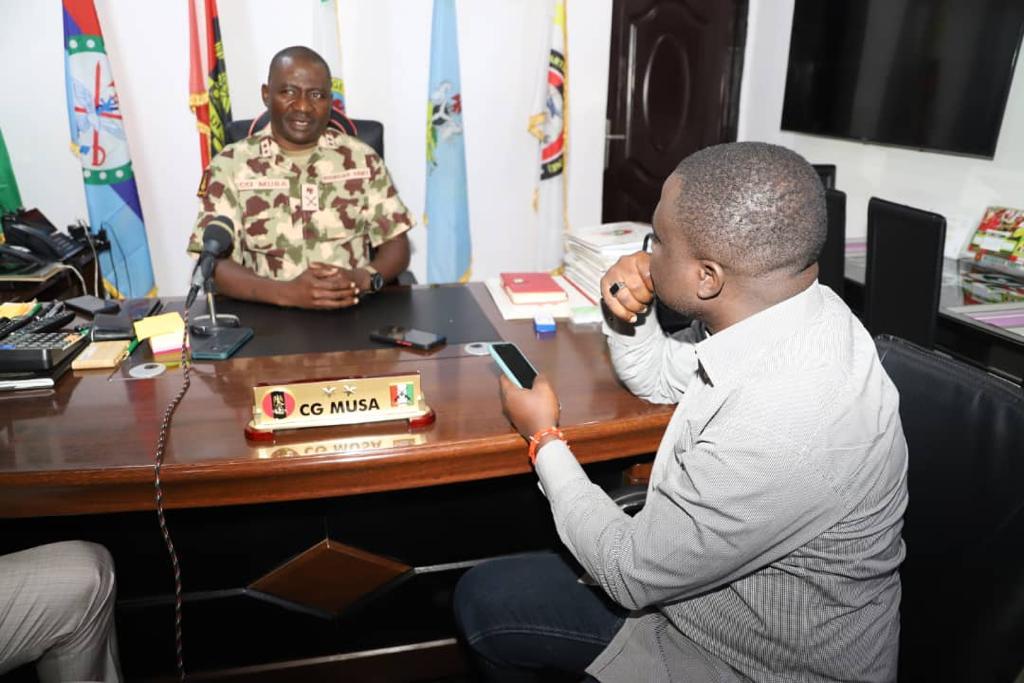
MUSA: Yes. From the local sources where they get from within, we’ve been addressing such issues. The DSS, not long ago, was able to arrest some bureau de change guys who were getting money for them. Also, we’ve been able to block where they’re getting urea to construct IEDs. We’ve been able to deny them access to get fuel. Now, we understand that in their area, a litre of fuel goes for about N10,000. A bag of rice goes for about N60,000 because they’re very hungry. So, those are the issues that are going on now. The aspect of international funding is where, diplomatically, the federal government is also taking it up so that they can follow up those channels to make sure we take them out.
TheCable: There are worries that ISWAP may be carrying out massive recruitments of fighters. How are you tackling this within the theatre?
MUSA: Well, in the north-east, it’s difficult because everybody is fed up. They’ve seen that they cannot succeed. If you talk to some that have surrendered, they will tell you they’ve seen that there’s no future. Thirteen years and still counting, they’re not going anywhere or gaining anything, only their leaders are making money. To them, it’s business, it’s no more ideological. A lot of their commanders are surrendering because they tell you that they don’t see any future in what’s going on. They want to come back and live their normal life. I think they’ve realised that’s the best way to go.
Advertisement
TheCable: Are there any territories, as we speak, been held by the insurgents within the theatre?
MUSA: Not at all, not anywhere in the north-east. But we still have a few of them that come out from the Timbuktu, from the enclaves. We recently conducted operation lake sanity, and with the multinational joint task force. They’ve been degraded quite extensively.
Advertisement
TheCable: While the north-east now feels safe with seemingly fewer attacks by the insurgents, banditry and kidnapping are on the rise, especially in the north-west. Late last year, the DSS said Boko Haram members were relocating from Sambisa forest in Borno state to Kaduna state. At the same time, Nasir el-Rufai, Kaduna governor, also said the north-west region is worried over the possibility of Boko Haram insurgents relocating from the north-east. What do you make of this, general?
MUSA: You know naturally that’s what they do. They actually don’t have the capacity to take up a very strong force. So, with the situation on the ground, they’ve seen that we’ve understood how they operate. We’ve been conducting a series of operations to counter their attempts. I can tell you some of them left the country entirely, some went to start their lives outside the country because they were just afraid.
Advertisement
These ones who moved to the north-central and north-west were also looking for safer areas where they think there are privileges, probably because of the banditry. And you know criminals, they always want to work together and that’s what they’re doing. But I’m happy that the armed forces are also taking up the responsibility, forming up capacities in the north-central and north-west to ensure that we tackle them.
TheCable: In the past year, hundreds of these insurgents, including some of their major leaders, have surrendered under your command. What do you do with these people when you receive them?
Advertisement
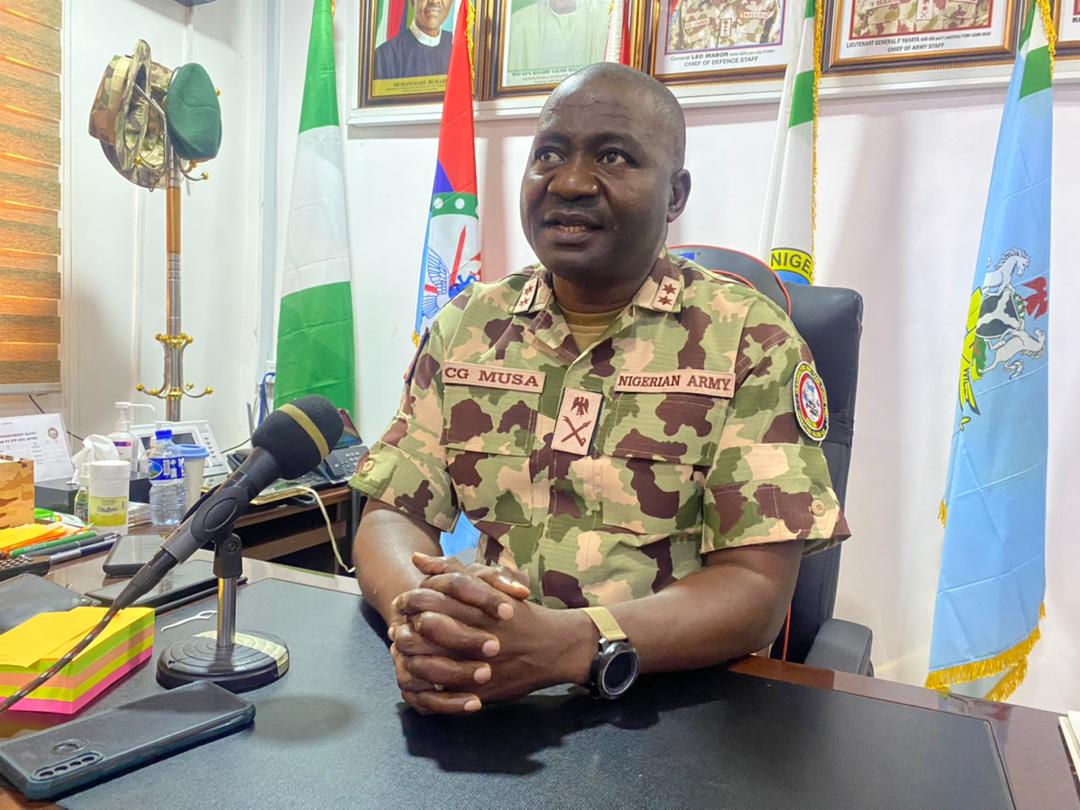
MUSA: The surrendering process is such that whoever is willing to surrender comes out and reports himself to the closest military location. So, the commander on the ground welcomes them, disarms, searches, and then profiles them – their names and details and all those things – in conjunction with the DSS.
You know operation Hadin Kai involves every parastatal and we have the representative of relevant agencies within, so we do these things together. We provide medical care. Some of them are in very bad shape and then give them some food. Some of them are very hungry; they can’t even walk much. So, once you do that, the state government will provide vehicles, and we will provide escorts to move them.
There are three camps that have been established in Maiduguri, so they move them into those camps, sort them out. The combatants are separated from non-combatants because we realised that there are some of them who were enslaved and being used as farmers, and then the women. You see, of these 73,000, over 33,000 are children, then the men are about 14/15,000. We’re sorting them all out and we’re hoping that under the DRR, they will be de-radicalised and reintegrated into the community. So, that’s the next phase. For now, where they’re being kept, they’re separated, they’re secured and we provide the security from outside so that nobody interferes from out-in or from in-out. But the state government provides their management and their administration.
TheCable: A couple of stakeholders do not agree with the de-radicalisation initiative. In fact, Babagana Zulum, Borno governor, said the de-radicalisation of repentant Boko Haram members is not working, and he alleged that these repentant Boko Haram members end up as spies for the insurgents. What is your assessment of this initiative?
MUSA: Well, I don’t know when he said that. That would have been probably at the onset because, you know, when it started, everybody was sceptical. ‘Will it work, will it not work, are they sincere?’. But since the process began, we’ve not had any serious issues with them from within. And let me tell you, some of them that surrendered are the ones even calling their colleagues, to show them that ‘look, I’m out’. What they were told initially was that with the way they treated and killed members of the armed forces, anywhere we see them, we will kill them and that we will never forgive them. So they have that fear. But when they came and the first few ones saw that they were treated well, they started calling the other ones. We even asked some mothers to call some of their sons to encourage them.
So that’s why I said that statement may be at the onset. You know nothing is 100% in life. But we’re monitoring everything and we’ve told them in clear terms that you’re now being given a second chance. If you mess this one up, you’re on your own. They know that very clearly. So those who have surrendered, the commanders on the ground have formed teams to track them. Also, if you surrender and you’re out and you want to go back for any reason, the insurgents themselves will kill you, because they’ll say you’re a spy. They’ll never accept you back. You can see it is a problem for them. So, I think it’s a good one. The governor is also doing his best. We’re working very closely with the government. Everything we do, we discuss and he has equally met the federal government over this. Something is being worked out and I think we’re on course.
TheCable: We’ve always had these complaints, especially from soldiers in this operation, that they are not well-equipped. You will also recall that in November, the chief of army staff said the N579 billion earmarked for the army in the 2022 budget is not enough for it to carry out its responsibilities, especially in the fight against Boko Haram. How are you addressing these complaints from soldiers?
MUSA: You know, it’s going to be difficult to supply all the equipment. One, we don’t produce, then the economy is not doing too well. You know most times, people don’t really understand. When they say they have released N1 billion, people look at it like it’s a lot. If you change N1 billion to a foreign currency, what can you buy? The 12 Tucano fighter jets that we bought were for $500 million, just 12. So imagine you have to buy more. How much does an M-RAP cost? How much does a tank or an aircraft cost? So, you find out that the money cannot even get you anything.
We’re lucky though. Last year, COAS was able to get some equipment for us from China. We had to go to China to get it because we were having some serious issues with some other nations as they denied us equipment and we don’t understand why. For 13 years, it’s been extremely difficult getting equipment. We don’t produce and we need equipment. So, where are we going to get them? So, that was the issue, but you know we got some from China and that was just about 25% of what we need and we’ve been able to achieve so much. Imagine we get like 90%. Some talk about military contractors, but I say fund your military properly and see what happens. It will take care of all of these.
TheCable: The chief of army staff has always talked about how he prioritises the welfare of officers and soldiers. Would you say you are satisfied with the welfare package for your men in this operation?
MUSA: Extremely, very well. Everybody is treated well. Everybody gets due allowances. Everybody sees their salary. For some people who have not been able to see their families, we organise passes for them. In fact, the COAS has gone ahead to organise welfare passes. We have these welfare passes where they use aircraft on two weekly bases to fly those on passes to Abuja and Lagos and then bring them back.
The promotion also comes when due. Officers and soldiers go on career courses because we still have to do that. You know we have to train a lot. Everybody has to go to school. You know the chief, knowing the importance of this thing, gives it a very high priority. Anything we need that he can provide, we’re sure of getting it. Everybody has seen the sincerity and the sense of purpose. Even with the civilians, you can see the attitude toward the troops has actually changed. Before now, civilians used to look at us as if we were occupiers, but now they know that we’re here to protect them and I think that’s working very well.
The army chief recently built three-bedroom flats for RSMs and gave them brand new Hilux vehicles to use to enhance their capacity. The RSM plays a vital role in every unit because they’re the link between officers and soldiers. So many other things that we’re putting in place and I think that has really gone so well with the troops and they know that to whom much is given, much is expected.
In addition, to the issue of discipline, we have a standing court martial. For any soldier who commits an offence, the court martial is there for him after a thorough investigation. I can tell you I’ve sent a number of people to jail. We do that because we have rules and we know the importance of discipline. Then the court system of reward and punishment, you do well you’re rewarded.
TheCable: We understand that as part of the effort to improve civil-military relations, you have provided some community-based support. Could you tell us more about this, and how it has also helped in achieving the goals of this operation?
MUSA: I think, first and foremost, it is creating the atmosphere for everybody to do what they are supposed to do and I think that’s basically the greatest achievement we’ve had. If you go to Maiduguri now and enter the town, life is almost back. You won’t even think that anything is going on outside. We do training constantly, we partner with all stakeholders, humanitarian agencies, traditional rulers, religious leaders, and even the victims. We discuss with everyone even members of the academia.
Various commanders at their locations will provide basic amenities. Our medical centres attend to the locals. We provide food items to them; we do medical outreach; even schools in the communities, there are times we have soldiers that are teachers there because the army has a department of education. Sometimes, we send some of our staff to teach when there is a shortage of teaching staff in some schools. Our engineers are also providing services to the community. They fix roads to make sure they are motorable. Although our greatest challenge here is the IED. The insurgents have planted IEDs on some of these bad roads.
The military is actually doing those things to ensure that we make life easier for a lot of people. A lot of places where the government can’t get to, we are there. We provide some of these amenities. I think that has really doused a lot of tension and has given the people so much confidence.
Additional reporting by Claire Mom
Add a comment

